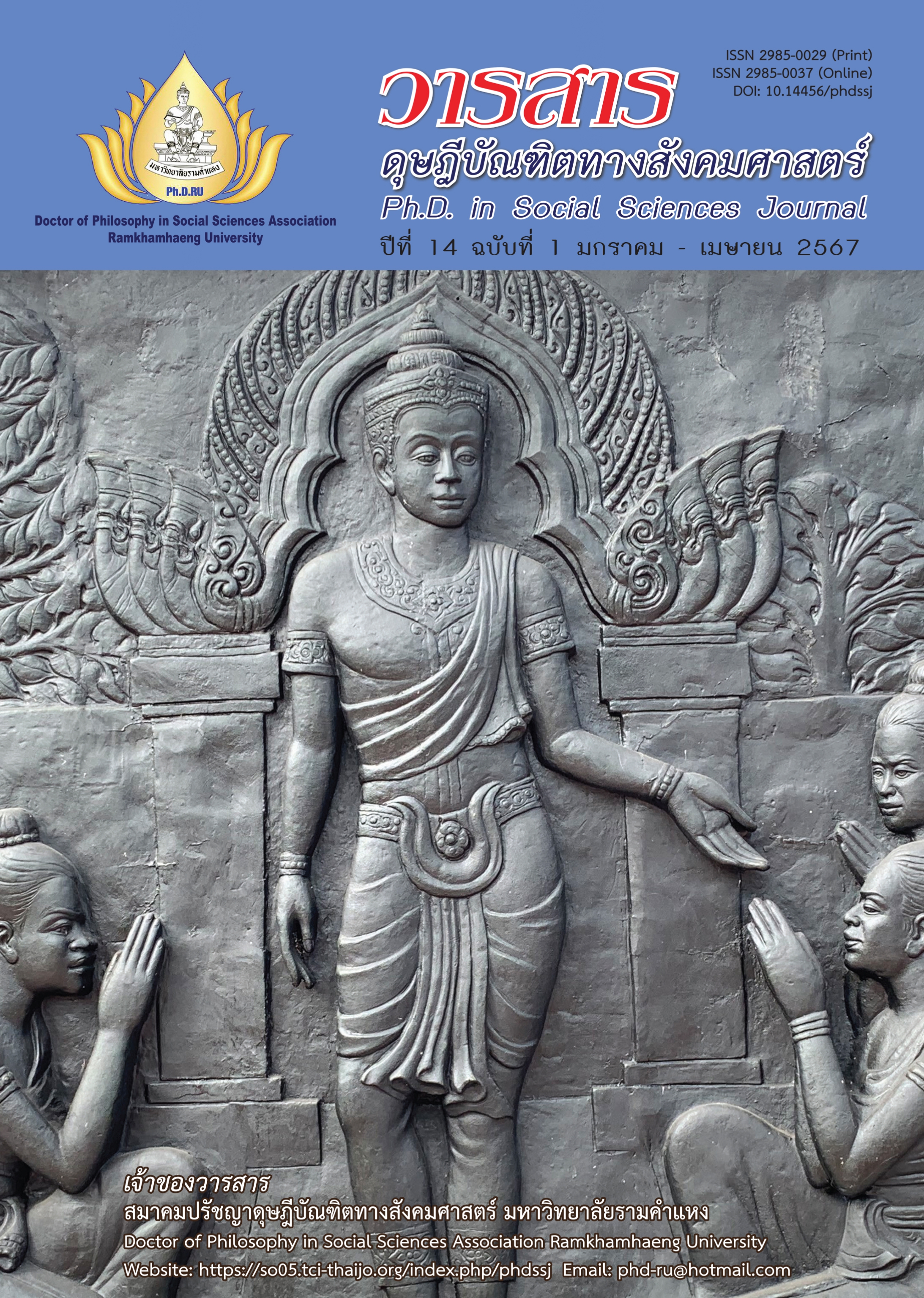Stock Control is Unfair for the Fundamentals of the Securities the Social Media
Main Article Content
Abstract
This research article aims to study (1) the importance of unfair securities price control measures on the fundamentals of securities; (2) the principle of investor worthiness towards unfair securities price control measures against fundamental factors; (3) the opinions and suggestions from retail investors which will lead to measures to control unfair securities prices on securities fundamentals by social media. This research is qualitative research by collecting data through document research and in-depth interviews with retail investors. Data was analyzed using content analysis techniques.
Findings are as follows: Retail investors in The Stock Exchange of Thailand opinions on the measures to control securities prices that are unfair to the fundamentals of securities the satisfaction level was moderate to quite high because the prices of stocks are artificially inflated without controlling the prices. Therefore, small investors who do not know the facts of investing in the Stock Exchange of Thailand fall victim to the price manipulation of the stock. As for the value of investors towards the measures to control unfair securities prices on the fundamentals of securities in moderate satisfaction because the prices of stocks are artificially inflated without controlling the prices. Therefore, small investors who do not know the facts of investing in the Stock Exchange of Thailand fall victim to the price manipulation of the stock. The effect of the need to create measures to control unfair securities prices on securities fundamentals by social media is highly demanding because news from social media is more than news from mass media. Will be used in consideration of investment. As a result, investments are made because they simply believe news obtained from social media that does not have such sources.
Article Details

This work is licensed under a Creative Commons Attribution-NonCommercial-NoDerivatives 4.0 International License.
Academic articles, research articles, and book reviews in the Ph.D. in Social Sciences Journal are author’s opinions, and not the publisher’s, and is not the responsibility of the Ph.D. in Social Sciences Journal Philosophy Association, Ramkhamhaeng University. (In the case that research is done on human, the researcher has to be trained in Ethics for Doing Research on Human Training and has to produce the evidence of the training).
References
Anuchitworawong, C. (2008). The value improved governance and the attention of information asymmetry. Retrieved from https://storage.googleapis.com/sg-prd-set-mis-cms/common/research/874.pdf [In Thai]
Bhanalaph, D. (1995). Legal measures against economic crime committed by financial institutions. Master’s Thesis of Laws, Chulalongkorn University. [In Thai]
Dominick, J. R. (2002). The dynamics of mass communication: Media in the digital age (7th ed.). McGraw-Hill.
Intharawichai, S. (2002). Collection of articles “Good Corporate Governance” by Professor Sangwian Intharawichai. The Stock Exchange of Thailand. [In Thai]
McQuail, D. (2005). McQuail’s mass communication theory (5th ed.). Sage.
Organisation for Economic Co-operation and Development. (2005). The OECD principles of corporate governance. Retrieved from http://www.cya.unam.mx/index.php/cya/article/view/562/560
Viboonsawat, A. (2014). Problems and obstacles in the enforcement of the Securities and Exchange Act B.E. 2535: A study of unfair actions relating to securities trading. Judicial Training Institute, Office of the Court of Justice. [In Thai]


